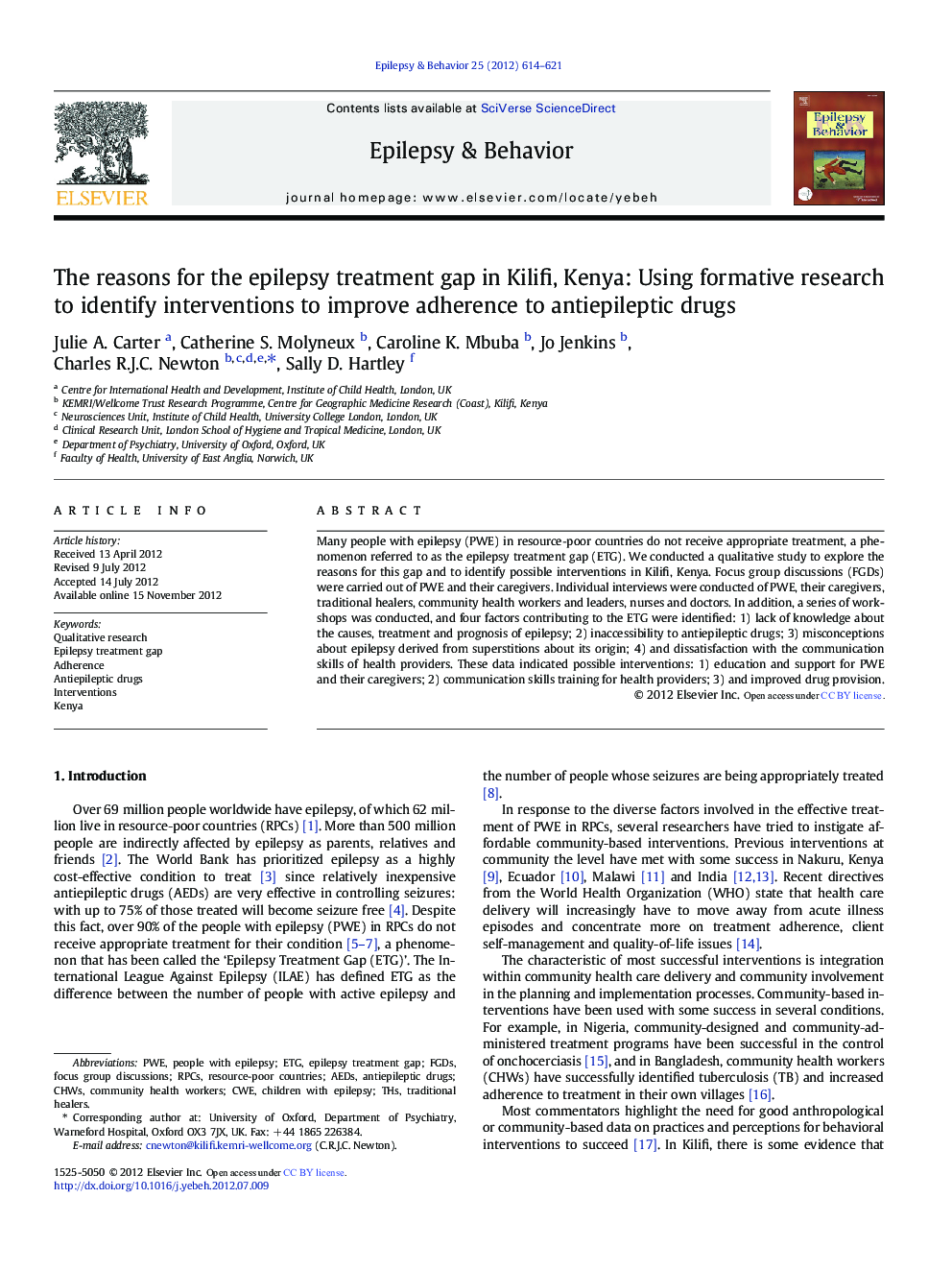| Article ID | Journal | Published Year | Pages | File Type |
|---|---|---|---|---|
| 6013840 | Epilepsy & Behavior | 2012 | 8 Pages |
Many people with epilepsy (PWE) in resourceâpoor countries do not receive appropriate treatment, a phenomenon referred to as the epilepsy treatment gap (ETG). We conducted a qualitative study to explore the reasons for this gap and to identify possible interventions in Kilifi, Kenya. Focus group discussions (FGDs) were carried out of PWE and their caregivers. Individual interviews were conducted of PWE, their caregivers, traditional healers, community health workers and leaders, nurses and doctors. In addition, a series of workshops was conducted, and four factors contributing to the ETG were identified: 1) lack of knowledge about the causes, treatment and prognosis of epilepsy; 2) inaccessibility to antiepileptic drugs; 3) misconceptions about epilepsy derived from superstitions about its origin; 4) and dissatisfaction with the communication skills of health providers. These data indicated possible interventions: 1) education and support for PWE and their caregivers; 2) communication skills training for health providers; 3) and improved drug provision.
⺠Many with epilepsy do not receive appropriate treatment; epilepsy treatment gap (ETG). ⺠Qualitative study exploring reasons for ETG and identifying viable interventions in Kenya. ⺠ETG can be addressed through development of multifaceted interventions.
